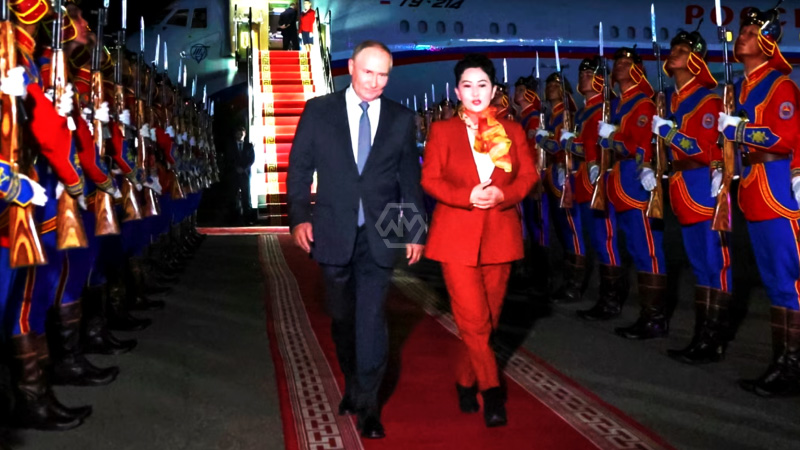- Russian President Putin visits Mongolia despite an ICC warrant for alleged war crimes.
- Mongolia, an ICC member, faces diplomatic pressure but refrains from arresting Putin.
- Putin’s visit strengthens ties with Mongolia and commemorates WWII-era Soviet-Mongolian victories.
Russian President Vladimir Putin made his first visit to an International Criminal Court (ICC) member nation since the court issued a warrant for his arrest on charges of war crimes.
The visit to Mongolia, a key ally dependent on Russian energy supplies, highlights the challenges ICC members face when balancing international obligations with national interests.
Putin’s Diplomatic Push: Mongolia Visit Defies International Arrest Warrant
Putin’s visit, marking the 85th anniversary of a Soviet-Mongolian victory over Japan, underscores Moscow’s efforts to maintain diplomatic ties amid growing international isolation. The Mongolian government, aware of its legal obligations under the Rome Statute, has prioritized its relationship with Russia. This decision mirrors similar dilemmas faced by other ICC member states dealing with powerful nations.
Mongolia, which shares deep economic and energy dependencies on Russia, faces a diplomatic dilemma. The Rome Statute requires ICC member states to detain suspects with outstanding warrants, but Mongolia has chosen to prioritize its relationship with Russia over its legal obligations. This decision comes as no surprise, considering the strategic importance of Russian support for Mongolia’s energy needs.
During his visit, Putin was warmly welcomed with traditional Mongolian ceremonies and held talks with Mongolian President Khurelsukh Ukhnaa. The two leaders discussed strengthening bilateral ties, and Putin invited Khurelsukh to attend a BRICS summit in Russia later this year. The visit also commemorated the Soviet-Mongolian victory against Japan in 1939, further emphasizing historical ties between the two nations.
Putin’s recent international trips, including visits to China and North Korea, reflect his ongoing efforts to counteract the global isolation caused by Russia’s invasion of Ukraine. Mongolia’s reluctance to act on the ICC warrant demonstrates the geopolitical complexities many countries face when balancing international law with strategic alliances.
Mongolia’s decision to host Putin without arresting him highlights the difficult balance between international law and geopolitical reality. For smaller nations, navigating these challenges often means prioritizing strategic alliances over legal obligations, particularly when dealing with powerful neighbors.
“Mongolia, like all other countries, has the right to develop its international ties according to its own interests.” – Nabila Massrali, European Commission spokeswoman



